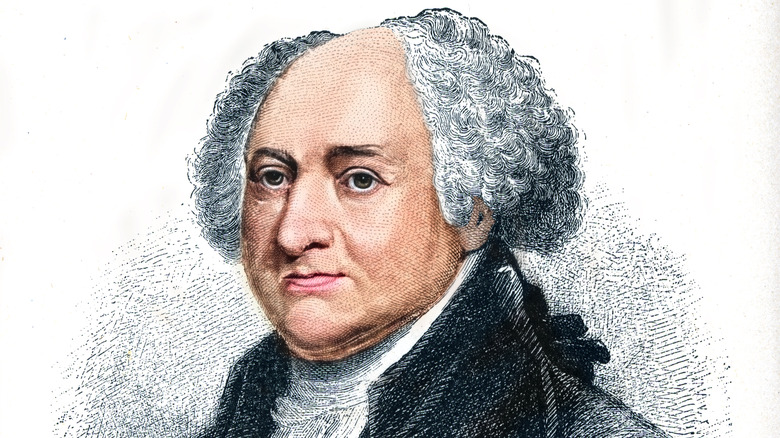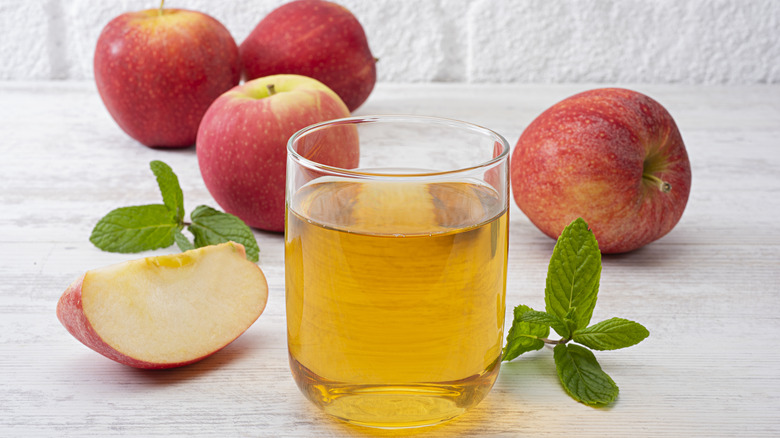John Adams Was Known To Drink A Fall-Favorite Booze Every Morning
History knows John Adams as a highly opinionated, sharp-witted Founding Father of the United States. But, textbooks likely don't include another little known fact about America's second president: Mr. Adams loved a boozy breakfast. In particular, he liked drinking hard cider each morning to start his day, likely accompanied by a simple plate of boiled vegetables and perhaps a cheeky slice of Abigail's homemade apple pandowdy, similar to apple pie.
We know this fact and a lot of other anecdotes about John Adams thanks to his extensive collection of diary entries and letters. Multiple journal passages in 1796 record his morning tipple of a "jill of cyder" (a jill, or gill in America referred to one-half cup, or 4 fluid ounces) to ease his digestion and to enjoy the "good effect." Apparently for the former POTUS, a jill of apple cider a day was key to keeping the doctor away.
During his time spent overseas as a diplomat in Europe, Adams likewise wrote to his wife Abigail, lamenting the lack of cider in the foreign lands. The wines and spirits of the Old World just wouldn't do — Adams was an apples man. In later years, Francis Adams Jr. confirmed his great grandfather's penchant for pink ladies. According to Francis, the Adams household always kept a barrel of cider on tap and served pitchers of it every morning and evening. They made the cider themselves from apple orchards on their farm that still stands today in Quincy, Massachusetts.
The Founding Fathers and their beloved beverages
John Adams wasn't the only one among his peers who knew how to put down a pint. Centuries ago, it wasn't uncommon for people to drink throughout the day, primarily partaking in beer, cider, and whiskey.
One account cites George Washington's tab during a single night out at the bar as "54 bottles of madeira, 60 bottles of claret, and seven full bowls of punch," according to the Smithsonian.
Washington also had the largest rye distillery in the nation at the time on his Mount Vernon Estate. The commercial distillery mostly peddled whiskey, un-aged and sold in barrels, in stores throughout Alexandria and Richmond, Virginia.
As for Thomas Jefferson, he was a sommelier of sorts. In his younger years, he had an appetite for strong varietals from Spain and Portugal that were popular at the time. His palette evolved to light wines from France and Italy later in life. Eventually, the third U.S. president started his own vineyard on his Monticello estate. He never harvested his own vines during his lifetime due to infestation. The vineyard eventually succeeded and remains in operation today along the Monticello Wine Trail in Charlottesville, Virginia.
Benjamin Franklin wrote the book on booze. Literally. Printed in The Pennsylvania Gazette on January 13, 1736, his Drinkers' Dictionary contained a collection of comical expressions. Franklin himself preferred ales and wine. He also sipped a milk punch recipe made of brandy, lemon juice, nutmeg, sugar, and whole milk.


